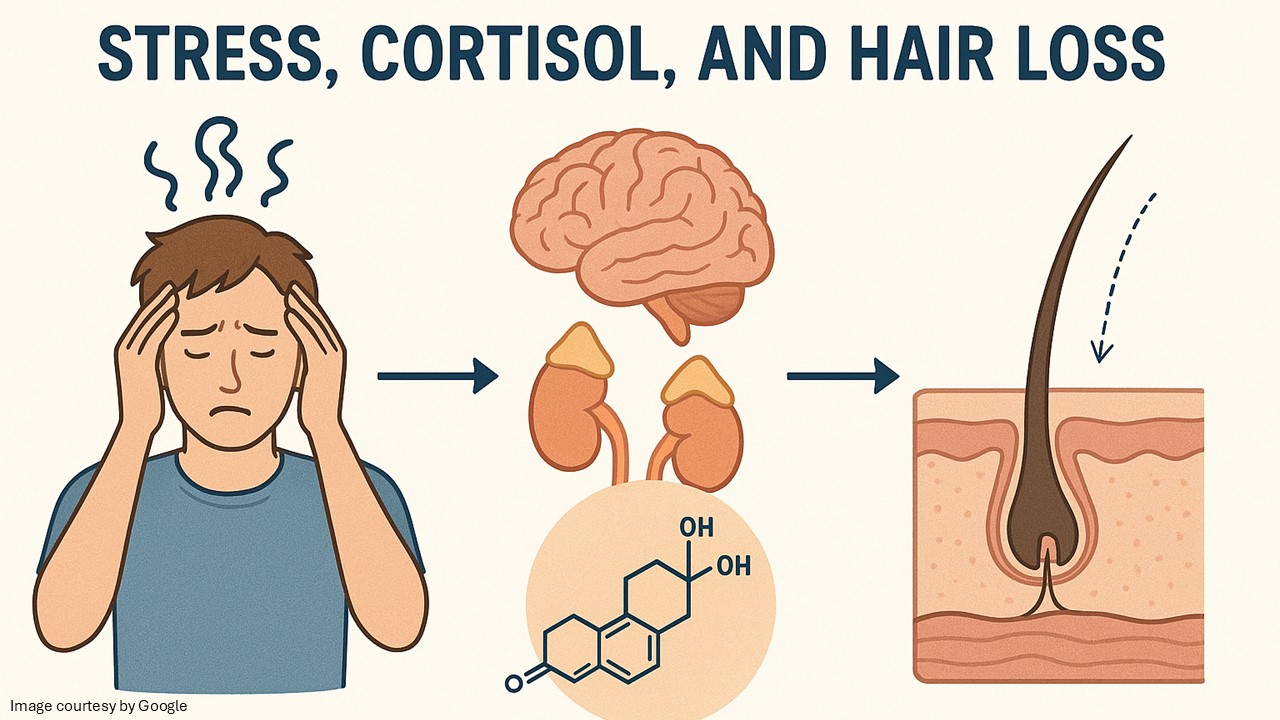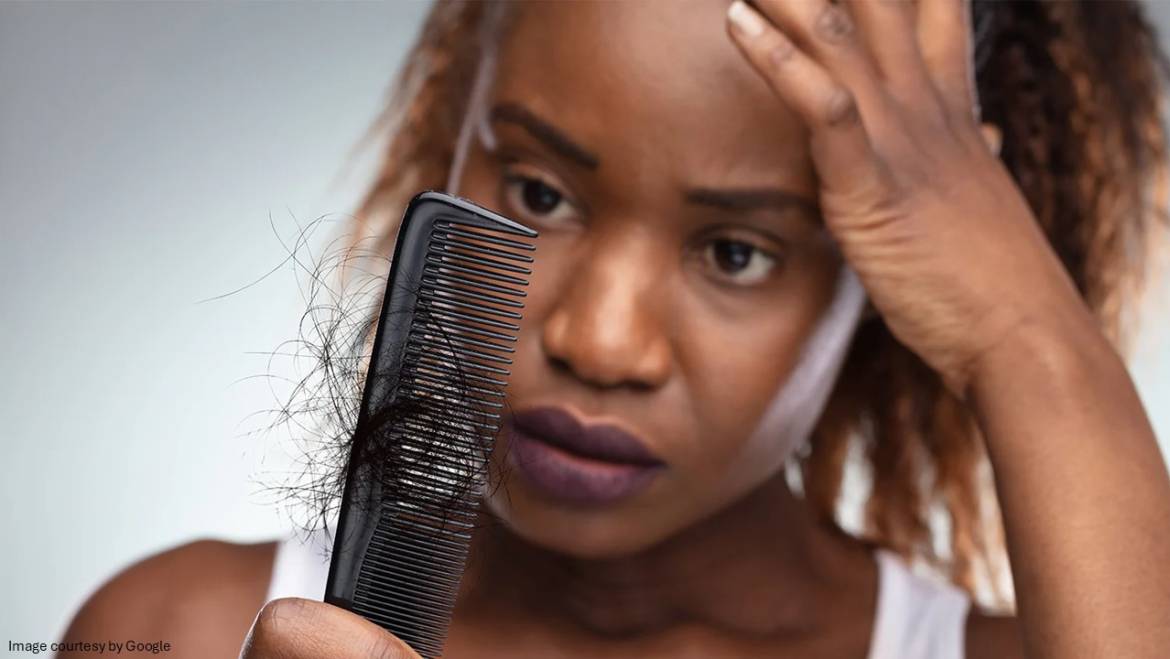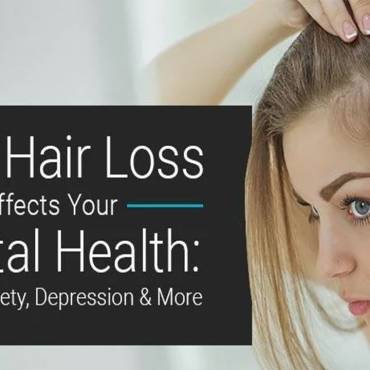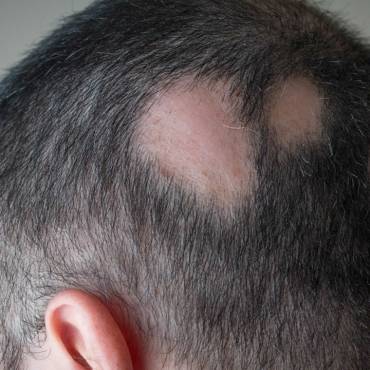Changes are a part of life; sometimes they come easily and sometimes with stress. Stress is a body’s natural reaction when a specific change or a challenge occurs in our lives. It can affect different physical, emotional, and behavioral aspects. Stress is unavoidable, and most people experience it from time to time; however, the frequency, duration, and severity of stress vary from person to person. Stress management techniques are one of the common ways to deal with it.
Does stress cause hair loss?
Often, it is asked if stress and anxiety cause hair loss. So, the answer is yes. Stress can contribute to various health issues, including hair loss, due to biological mechanisms and behavioural factors that disrupt the normal hair growth cycle. The effect of hair loss due to stress is typically temporary, causing hair thinning and patchy bald spots, depending on the condition that stress triggers.
Stress leads to hair loss by affecting telogen effluvium, alopecia areata, and trichotillomania. Chronic stress elevates stress hormones (cortisol), which affect the hair growth cycle by pushing it into a resting and shedding phase, causing premature hair loss. Alopecia areata occurs when the immune system attacks hair follicles, while trichotillomania involves a compulsive urge to pull out hair. Keep reading to know more about the connection between stress and hair loss.
How stress affects the hair growth cycle
To understand how stress causes hair loss, it helps to know the three main stages of hair growth:
-
- Anagen (growth phase) – The active growth stage, which lasts for several years.
- Catagen (transition phase) – A short, transitional phase where growth stops and the hair follicle shrinks.
- Telogen (resting phase) – The resting phase, which lasts a few months before the hair is shed and the cycle begins anew.
Under normal conditions, most of your hair is in the anagen phase at any given time. Stress can disrupt this balance, causing more hair follicles than usual to enter the resting or shedding phases.

What type of stress causes hair loss?
Types of stress-related hair loss can vary from person to person. Stress can cause or aggravate several types of hair loss:
Telogen effluvium (TE)
This is the most common form of stress-related hair loss, where severe emotional or physical stress pushes a large number of hair follicles prematurely into the resting (telogen) phase. Stress triggers an increase in cortisol, a hormone that disrupts the hair cycle. In addition, inflammation caused by chronic stress can further disrupt hair follicles. Excessive shedding typically occurs about 2 to 4 months after the stressful event. Hair may come out in large handfuls while washing or combing.
This condition is usually temporary. Hair often begins to grow back within 3 to 6 months once the underlying stress is managed.
Alopecia areata
It is an autoimmune disease where the body’s immune system attacks its own hair follicles, leading to patchy hair loss. While not a direct cause, severe stress is a known trigger for alopecia areata flare-ups in those who are genetically predisposed. A stressful event often prompts an immune attack on hair follicles.
In this condition, the hair loss typically appears as small, round, and smooth bald patches on the scalp. This condition can be unpredictable. Hair may grow back and then fall out again in cycles.
Trichotillomania
It is a psychological disorder characterized by an irresistible, compulsive urge to pull out one’s own hair. For many people with trichotillomania, hair-pulling is a coping mechanism for negative feelings, including stress, anxiety, and tension. The action provides a temporary sense of relief, reinforcing the behavior. It causes noticeable bald spots or areas of thin, broken hair, often visible on the scalp, eyebrows, or eyelashes.
This condition requires professional treatment, such as therapy and sometimes medication, to break the compulsive behavior.
How to reduce stress and hair loss?
Managing stress to reduce hair loss and other health issues is important for overall well-being.
To support hair regrowth, addressing the root cause is essential. Strategies for managing stress-related hair loss include:
-
- Practice relaxation techniques –Incorporate deep breathing, meditation, or yoga into your daily routine to lower stress hormones like cortisol.
- Get regular exercise – Physical activity can reduce cortisol levels and boost circulation to the scalp.
- Maintain a balanced diet –Ensure you get adequate protein, vitamins, and minerals. Deficiencies in nutrients like iron and biotin can weaken hair.
- Prioritize sleep –Aim for 7–9 hours of sleep per night to help regulate hormones and aid the body’s healing process.
- Seek professional help – If hair loss is severe or persistent, a dermatologist can help determine the exact cause and recommend targeted treatments to manage hair loss and stress you may be struggling with.
Summary
Stress has both aspects, i.e. good and bad. When taken positively, we discover ways to succeed; however, when it takes a negative turn, it causes harm. If you are struggling with stress and hair loss, check the above tips to manage it.



